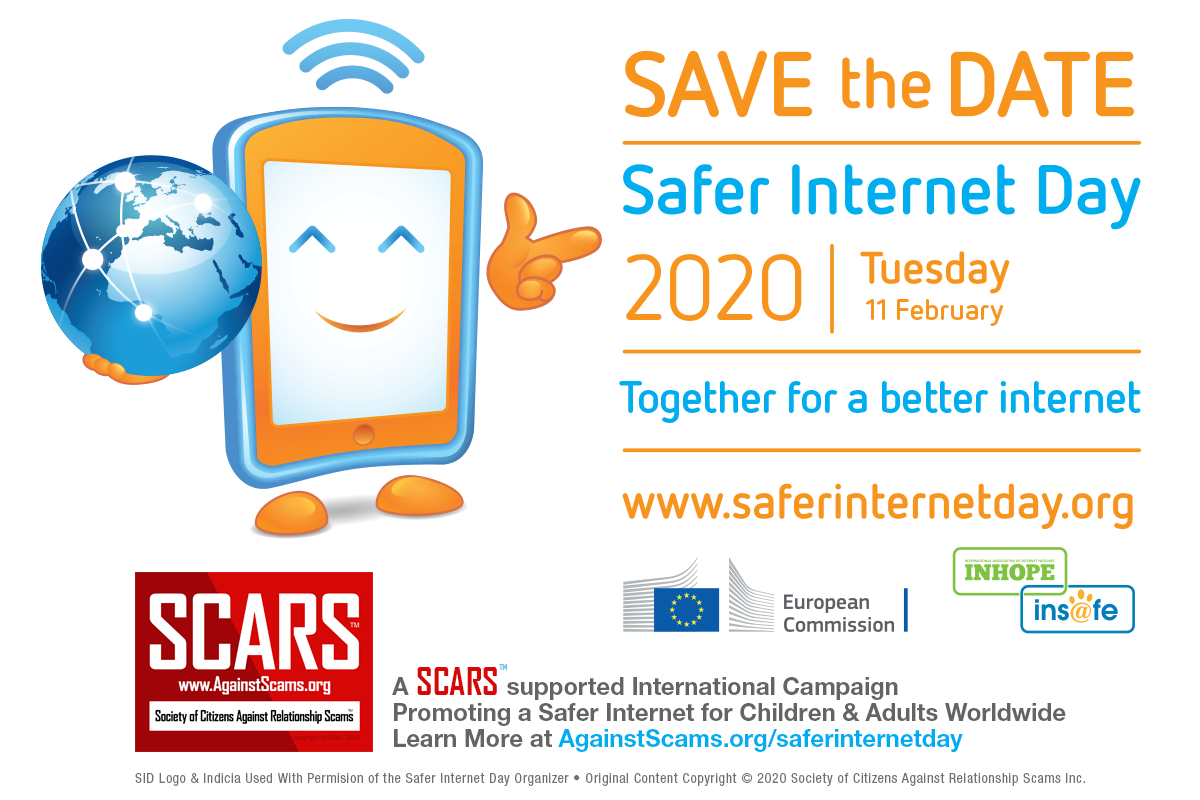
ABOUT SAFER INTERNET DAY
Over the years, Safer Internet Day (SID) has become a landmark event in the online safety calendar.
Starting as an initiative of the EU SafeBorders project in 2004 and taken up by the Insafe network as one of its earliest actions in 2005, Safer Internet Day has grown beyond its traditional geographic zone and is now celebrated in approximately 150 countries worldwide.
From cyberbullying to social networking, each year Safer Internet Day aims to raise awareness of emerging online issues and chooses a topic reflecting current concerns.
Safer Internet Centres and Committees
Insafe is a European network of Safer Internet Centres (SICs). Every national Centre implements awareness and educational campaigns, runs a helpline, and works closely with youth to ensure an evidence-based, multi-stakeholder approach to creating a better internet.
However, Safer Internet Day is also celebrated outside Europe. In 2009, the concept of Safer Internet Day Committees was introduced, to strengthen the bonds with countries outside the network and invest in a harmonised promotion of the campaign across the world. More than 100 global SID Committees (and those working towards SID Committee status) now work closely with the Safer Internet Day Coordination Team, which is based at the heart of the European Union in Brussels.
Supporting SID
SCARS is proud to showcase events and actions for Safer Internet Day.
Safer Internet Day 2020 Campaign:
Safer Internet Day (SID) is organised by the joint Insafe/INHOPE network, with the support of the European Commission*, each February to promote the safe and positive use of digital technology, especially among children and young people. Celebrated on the second day of the second week of the second month, each year on Safer Internet Day millions of people unite to inspire positive changes online, to raise awareness of online safety issues, and participate in events and activities right across the globe.
Safer Internet Day aims to create both a safer and a better internet, where everyone is empowered to use technology responsibly, respectfully, critically and creatively. The campaign aims to reach out to children and young people, parents and carers, teachers, educators and social workers, as well as industry, decision makers and politicians, to encourage everyone to play their part in creating a better internet.
By celebrating the positive power of the internet, the Safer Internet Day slogan of “Together for a better internet” encourages everyone to join the movement, to participate, and to make the most of the internet’s potential to bring people together.
With a global, community-led approach, Safer Internet Day encourages everyone to come together and play their part. There are many ways to do this:
- Children and young people can help to create a better internet by being kind and respectful to others online, by protecting their online reputations (and those of others), and by seeking out positive opportunities to create, engage and share online.
- Parents and carers play a crucial role in empowering and supporting children to use technology responsibly, respectfully, critically and creatively, whether it is by ensuring an open dialogue with their children, educating them to use technology safely and positively, or by acting as digital role models.
- Teachers, educators and social workers can help to create a better internet by equipping their pupils and students with digital literacy skills and by developing their critical thinking skills, which will allow them to better navigate the online world. They can empower them to create their own content, make considered choices online, and can set a personal example of positive online behaviour for their pupils and students.
- Industry can help to create a better internet by creating and promoting positive content and safe services online, and by empowering users to respond to any issues by providing clear safety advice, a range of easy-to-use safety tools, and quick access to support if things do go wrong.
- Decision makers and politicians need to provide a culture in which all of the above can function and thrive – for example, by ensuring that there are opportunities in the curriculum for children and young people to learn about online safety, ensuring that parents and carers have access to appropriate information and sources of support, and that industry is encouraged to self-regulate its content and services. They must also take the lead in governance and legislation, and ultimately ensure the safety and wellbeing of children and young people through effective child protection strategies for the digital world.
- Everyone has a responsibility to make a positive difference online. We can all promote the positive by being kind and respectful to others and by seeking out positive opportunities to create and connect. We can all respond to the negative by reporting inappropriate or illegal content and behaviour online.
We invite you all to join with SCARS and all of the official supporters of a Safer Internet Day for a better internet on the next edition of Safer Internet Day on Tuesday, 11 February 2020
* Safer Internet Day would not be possible without the support of the European Commission. Currently the funding is provided by the Connecting Europe Facility programme (CEF). Find out more about the EC’s “European Strategy for a Better Internet for Children” on the European Commission’s website.
SCARS is proud to be an affiliate organization of the Council of Europe of the European Union in support of cybercrime initiatives.

